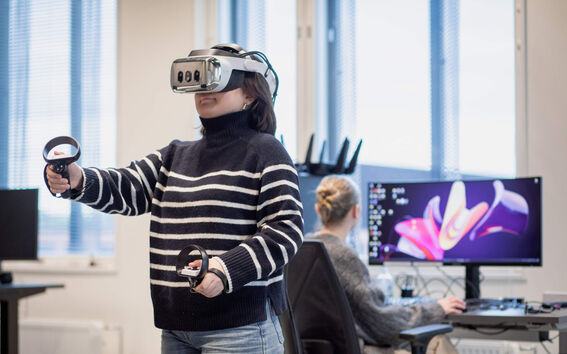Structure of studies
The Human-Computer Interaction major is part of the two-year Master’s Programme in Computer, Communication, and Information Sciences. The programme comprises a total of 120 ECTS credits:
- Major studies (40 or 60 ECTS)
- Possible minor studies (20-25 ECTS)
- Elective studies (25-30 ECTS)
- Master’s thesis (30 ECTS)
Students can select their minor either from the other study options in the Master's Programme in Computer, Communications and Information Sciences or from other programmes offered by Aalto University. All major and minor studies are intended to be completed during the first year, when you learn the core methodologies and techniques in the design and analysis of human-computer interaction.
Your second year is dedicated to your master’s thesis and elective studies, where you’ll have the opportunity to specialise in a chosen technical topic. The elective studies consist of additional major courses, an additional minor, multidisciplinary courses, or studies abroad. You can choose practically any combination of elective courses – from Aalto or other universities in Finland and abroad – that supports your studies and suits your interests. For example, you can take part in the Interaction Design course organised by Aalto’s School of ARTS.
Alongside interactive lectures and seminars, the teaching in the programme emphasizes practical, hands-on learning, research, and group projects. All the teaching leads up to a capstone project – a major project that will test your ability to design, build and study a system from end-to-end.
More information about the programme content and curriculum can be found in the Student Guide. There may be some changes to the courses for the academic years 2026–2028 — the new curricula will be published in April 2026, when they will also be visible in the Student guide.
Our curricula are designed for full-time students. While master's students often work part-time during academic terms or full-time in the summer, full-time work during academic terms is discouraged. Part-time work requires careful planning and extra effort, as not most courses are available online or every year.
While there may be courses that are available online, as a general guideline, studies at Aalto University School of Science require on-campus attendance.















